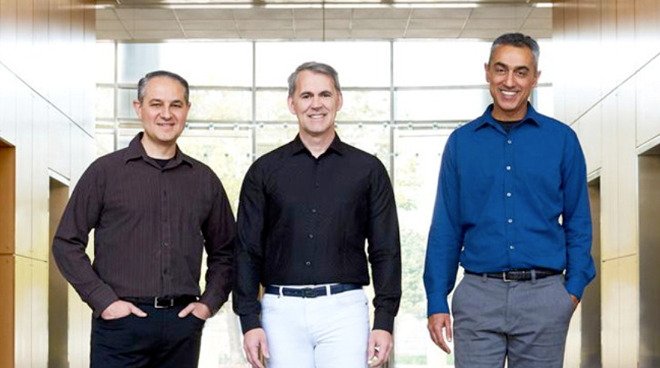Apple has filed to drop its lawsuit against Nuvia co-founder Gerrard Williams III, one that accused the former chip architect of a breach of contract and poaching employees.
In 2019, Apple sued the former iPhone and iPad processor designer Williams for breach of contract. Over three years later, Apple filed to drop the suit.
The request was filed in state court in San Jose, California earlier in the week, according to Bloomberg, however the filing doesn't say why it was dropped at all. Apple didn't respond to a requests for comment on Friday over the filing.
The lawsuit originally alleged that Williams had used his years of access to Apple's information to start Nuvia, in a field he worked on at Apple. At the time, the iPhone maker's filing said that "by 2018, Williams had started his new venture on Apple's dime."
Williams also allegedly took measures to avoid "written communications that he thought Apple could find," such as by phoning potential recruits or used Nuvia colleagues to contact them on his behalf.
In response, Williams filed a counterargument insisting the anti-competitive clauses were against the state legislature. The court allowed the suit to continue despite Williams' "notice of demurrer."
By January 2021, Nuvia was acquired by Qualcomm for $1.4 billion.
 Malcolm Owen
Malcolm Owen








 Marko Zivkovic
Marko Zivkovic
 Mike Wuerthele
Mike Wuerthele
 Christine McKee
Christine McKee
 Amber Neely
Amber Neely
 Sponsored Content
Sponsored Content
 Wesley Hilliard
Wesley Hilliard

 William Gallagher
William Gallagher









7 Comments
In the US, non-compete clauses are almost impossible to enforce. Your mind, is inherently your own. Your ideas, while employed, may belong to your employer. But once that employment contract is broken, your ideas are once again your property; primarily because slavery is legal, morally and ethically wrong.
Yes, he may have been shown, taught and worked with superior technologies, and while he was employed at Apple, his job was to learn and become an expert in using these technologies. But, as anyone can do, you can master a topic, and eventually - in some cases - improve upon it. Instead of fighting to promote change and the bureaucracy internally, this man chose to cut ties with Apple - and promote his ideas himself.
Good on him. Roger Ross (creator of RISC computing) started life off with Motorola, and with a small team produced the first RISC 88000 Motorola RISC processor family. Internal strife within Motorola, in Austin, TX (yeah, I was there at the time) was frustrating. So he left, and most of the interns that helped him (because Motorola Sr. Managment "re-routed" his Sr. Engineering requisitions) took very high paying jobs with SPARC, and went on to create the HyperSPARC architecture. At the time, they did very well for a start up. Motorola tried unsuccessfully to invoke non-competitive clauses to stop Roger, but the principle outlined above, won in Texas court, time and again.
Non-compete clauses and charges of "poaching" should be laughed out of court. Slavery is against the law and should not be allowed in any shape or form. Now if Apple has definitive proof that he was working out this outside project while they paid him, they should show it and move on. The fact that they've dropped this case years later is very interesting. I wonder if it's partially (mostly?) because his firm was bought by Qualcomm and their partnership/dealings with it gives Apple access to its tech.
This has been going in for some years though, even if Apple eventually dropped it. Goliath scaring off the Israelites. Not everyone is a David. From Apple’s perspective, the process is delivering the punishment. A lesson to others thinking of doing similar.
Supposedly that group wanted to develop a server grade Apple Silicon chip and they were told no and so they left and started Nuvia.